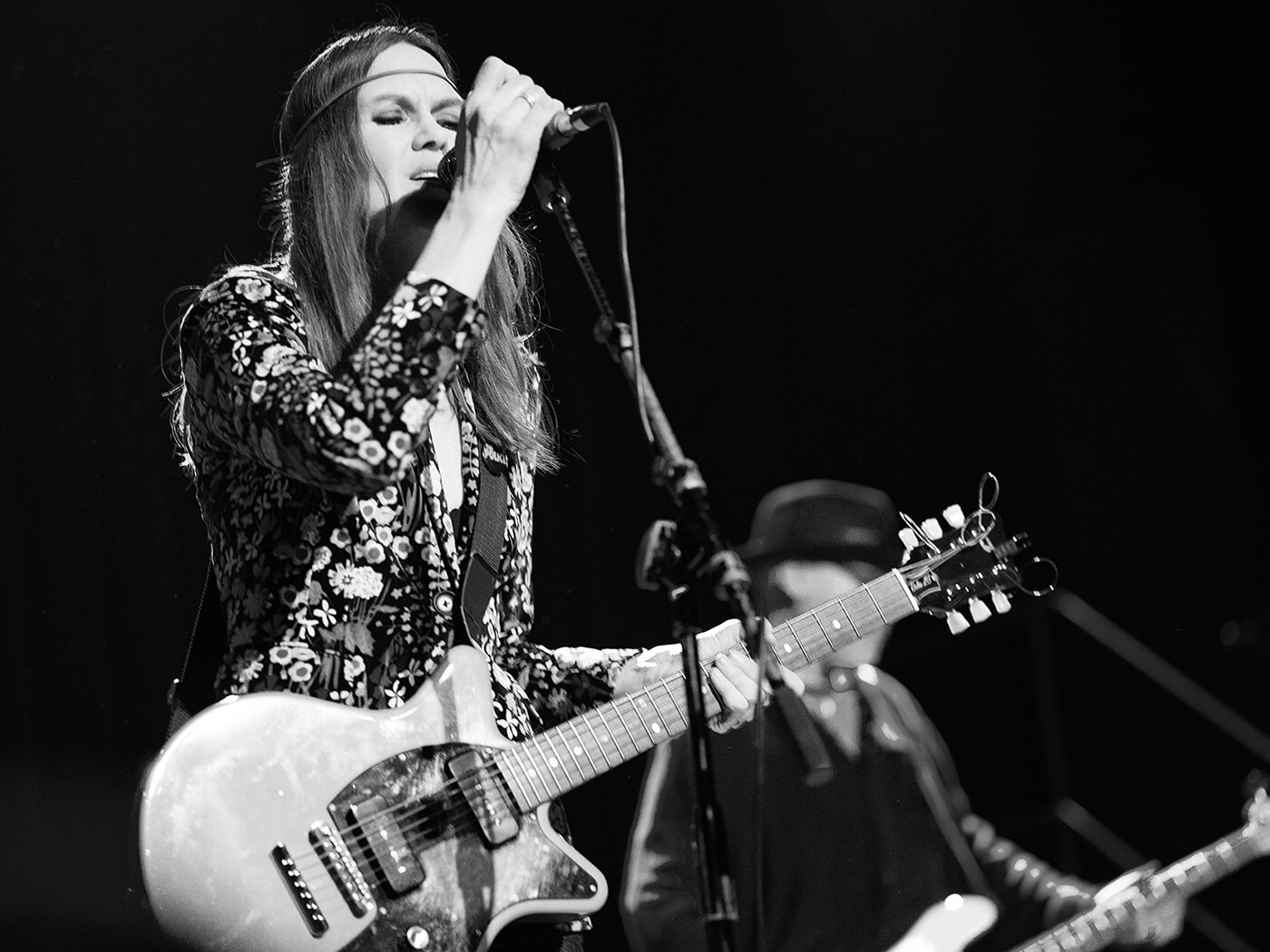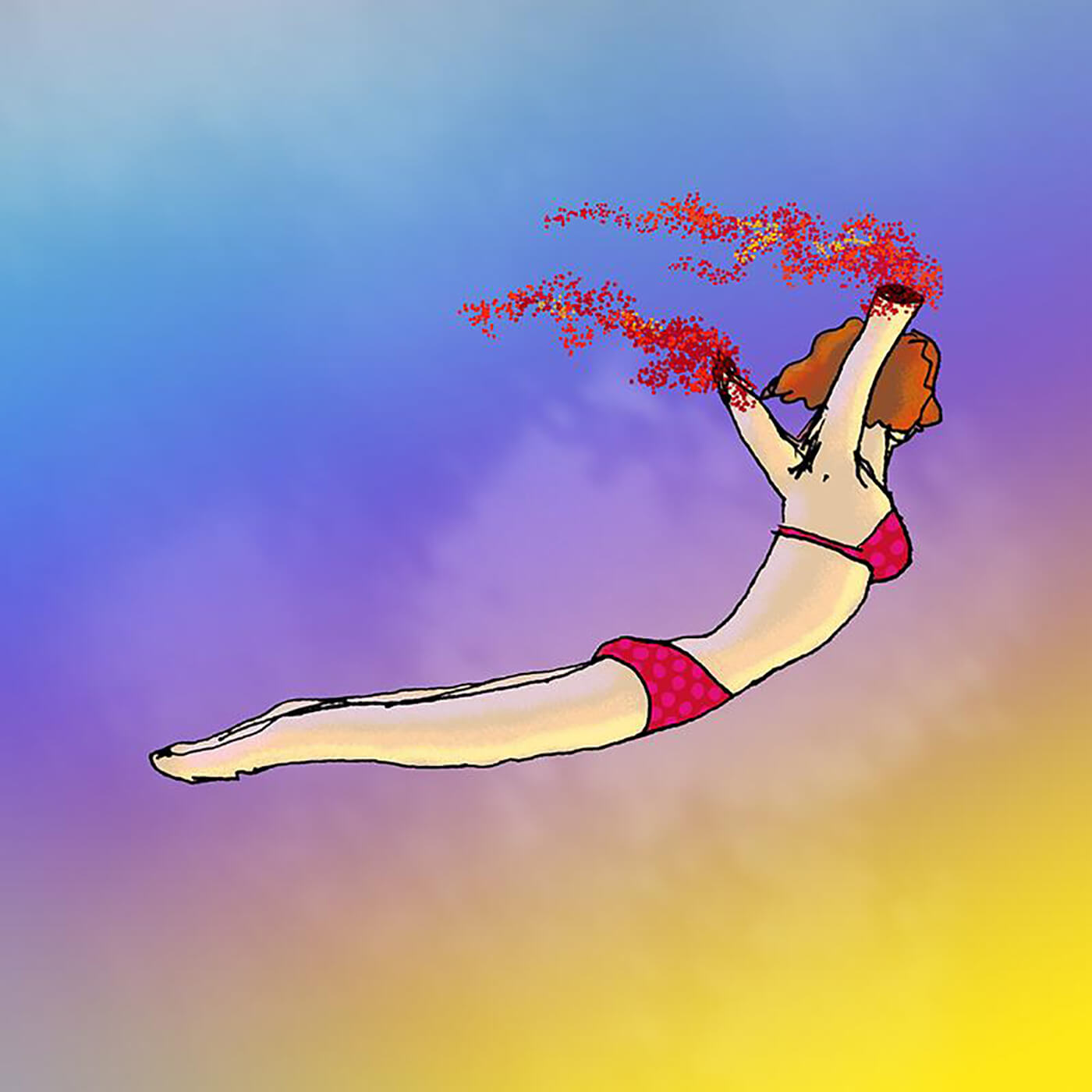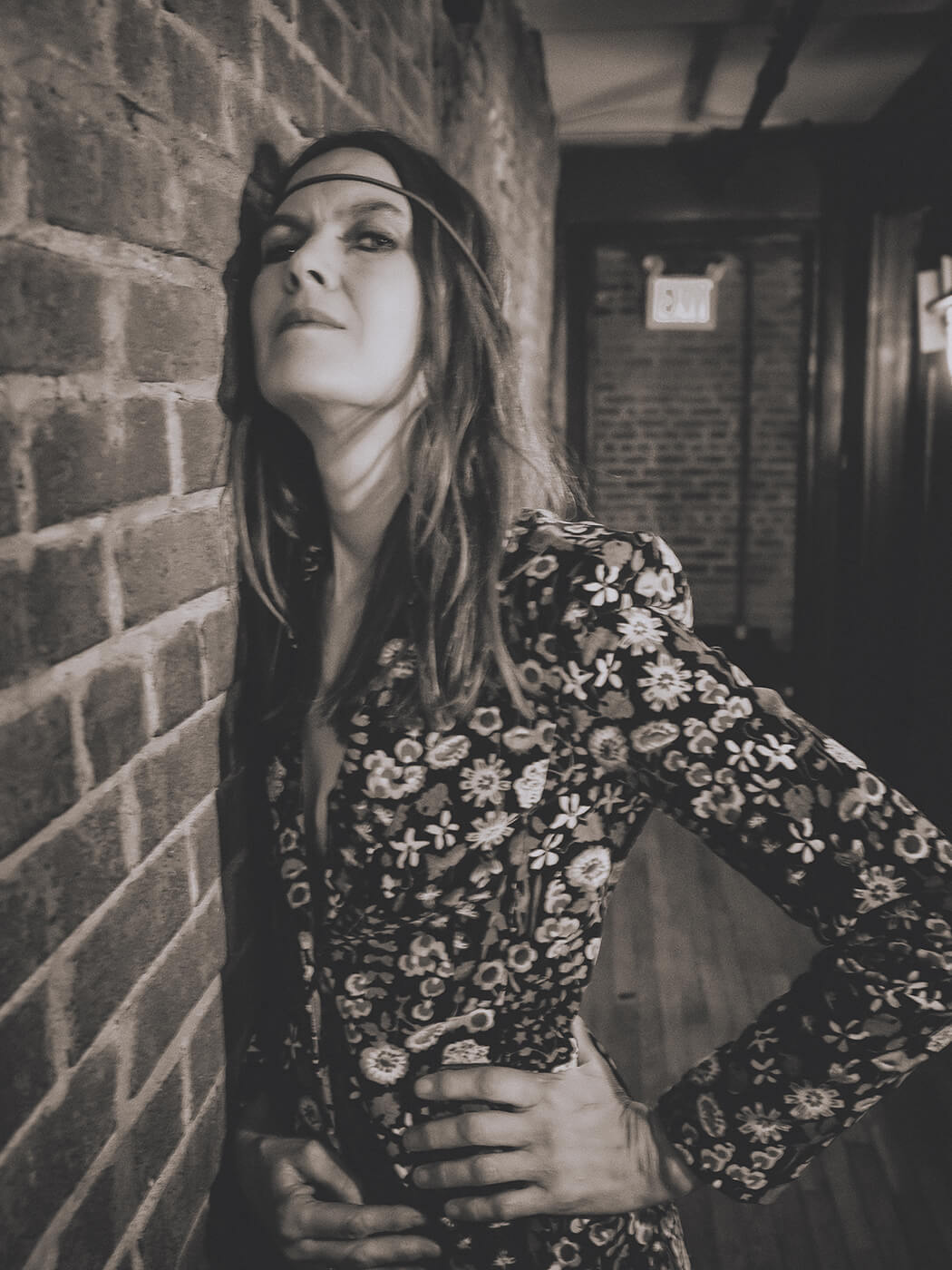Juliana Hatfield: “The most joyful part of life is melodies and harmonies – singing them, playing them, listening to them”
Following the release of her latest album, Blood, indie-rock icon Juliana Hatfield talks about songwriting, her minimalist guitar ‘collection’ and why recording an album during a pandemic meant she finally had to get to grips with GarageBand.

Juliana Hatfield has just released her 19th solo album of original material, Blood – it’s the latest entry in a wonderfully varied career that sees her rightly enshrined as indie-rock royalty. She started out with her Boston band Blake Babies back in 1987, and has also incorporated two albums of covers (The Police and Olivia Newton John, since you ask), releases with Some Girls, The I Don’t Cares, Minor Alps, a stint playing bass with the Lemonheads, and a six-song EP with the band Frank Smith. So yes, she’s extremely prolific. What is also remarkable is the consistent quality of that output. From the outside it appears almost effortless, as if the music lives inside her always.
“Music that’s in my ear, just day to day melodies that I��’m humming, that’s usually other people’s songs,” Hatfield tells us from her home in Cambridge, Massachusetts. “When I’m writing, when I’m coming up with new things, I’m usually more focused. I have to sit down and work on it.
“If I were insanely wealthy, maybe I would be too lazy to write songs, but I’m really self-motivated to be productive because I have to make a living and, if I’m honest, that is a good motivation.
“It’s not the only motivation, of course, because I have infinite things I want to say in songs. But I think it’s a healthy motivation to keep me productive because I can’t really stop. I don’t have that freedom.”
Blood is, according to its creator, “a reaction to how seriously and negatively a lot of people have been affected by the past four years. But it’s fun, musically. There’s a lot of playing around.” And that is a central tenet of Hatfield’s music throughout the last three decades: no matter how dark the subject matter, the melody always bursts through in the music.
“I just don’t feel like I have to put dark lyrics to dark music,” Hatfield tells us, “I don’t believe in matching the subject matter to the tone of the music. For me, melody is so joyful and it comes from a really joyful and innocent place inside of me. I never want to lose that knack I have for melodies and harmonies. The most joyful part of life, for me, is melodies and harmonies, singing them, playing them and listening to them.”
Garage rock
While the music is instantly familiar, the album’s creation during pandemic lockdown was anything but. “It was challenging in that I had to figure out how to record into my laptop, which I had never done before,” she says. “I hate digital technology, but when the studio I usually record in closed, that was my opportunity to finally face GarageBand. And so I was learning by doing. I started recording the album and that’s when I started to figure out how to use GarageBand.
“So I got out my microphone to start, and then I was like, wait a second, there’s no hole big enough on my laptop to fit this, there’s no input. And that’s how ignorant I was.”
On the subject of making music, however, Hatfield has it down. A multi-instrumentalist who has often provided much more than just guitar to her recordings, on Blood her increased isolation led her to making perhaps her most truly solo record.
“My friend in Connecticut, Jed Davis, programmed some of the more ornate drum tracks, like on Shame Of Love and Had A Dream,” explains Hatfield. “But I think most of the stuff he did was digital stuff, so yeah, I played all the guitars for sure, and all the real bass, some of the keyboards, all the Mellotron sounds are me and the strings are me also.
“I was working with a lot of the GarageBand sounds for guitar and bass, and I could record my acoustic guitar and sing okay without feeling like I was bothering anyone else in the apartment block. But later, after I had recorded a lot of the album, the studio I like [Q Division, from where Hatfield has been performing monthly livestreams of albums from her back catalogue during lockdown] opened back up again, so I went to the studio with all of my files and I recorded some louder, amplified guitars there. And also I recorded some real drums.”
Despite her wide-ranging musical talents, guitar is the instrument with which Hatfield is most readily identified and the one to which she most frequently turns. But it wasn’t always so.
“Piano was my first instrument,” she tells us. “I took piano lessons for a long time, I accompanied the high school choir on piano, and then I applied to the Berklee College of Music as a piano student because I thought that was the only way they would accept me. And I got in.

“But once I got into a band at Berklee, I completely lost interest in piano and kind of abandoned it. I never play an acoustic piano anymore, I got really burned out on it.
“When I met the other Blake Babies, that was when I bought my first electric guitar and started to play it.”
The guitar in question was a Gibson Challenger. This little-known model was produced for just two years between 1983 to ’85 in the tail end of Gibson’s Norlin era, primarily to use up crates of parts left unused from the disastrous Marauder project. Suffice to say, it’s not particularly well though of as a design, but Hatfield will fight its corner.
“If I had never seen that Gibson Challenger hanging on the wall in the guitar store, I never would have bought it. And then, who knows, maybe I would never have become a musician?
“I don’t know, maybe the world would be better off without my music in it, but I remember seeing that guitar on the wall and it was $100 or something. And it looked like the guitar that Paul Westerberg of the Replacements had played on Saturday Night Live, which had been a mind-blowing experience for me.
“I don’t think it was the same guitar, he was probably playing a Les Paul or something, but the Challenger had that shape to it. And I remember I was so excited when I acquired the guitar, I was floating on a cloud. So, you know, I never would have had that feeling if the Challenger hadn’t existed.”
But was it any good? “I loved it, but then I didn’t know anything about electric guitar. I don’t know if I even plugged it in at the guitar store, I just had to have that guitar because it was affordable and it looked cool, and then I figured out sounds later. I feel like you can make anything sound okay if you have the right amps and pedals, you can just layer pedals on top of it. But the feel of the neck does have to be good and work with your fingers, that’s a really important part of it.”
Hatfield would later team up with Westerberg in The I Don’t Cares, of course, did she ever share the fact that his appearance on SNL had been so formative?
“I don’t know if I ever told him that story,” she says. “I probably did, and he probably just chuckled. But he knows how much of a fan I was when I was younger, my teenage head would’ve exploded if I’d known that someday I would be in Paul’s basement making music with him. It was my teenage dream, basically, and it was happening.”
One in, one out
Hatfield has gone through quite a few guitars in the years since that Challenger, but very few of them remain in her custody now. “I have the new Yamaha Revstar 502 I’ve been playing on the most recent livestreams,” she tells us. “I like the simplicity of it and I like the P-90 pickups. I had never played a Yamaha electric before, so it was kind of an experiment for me, and it’s brand new but, so far, I like it.
“I only have two other electric guitars right now, and they’re both really different, but they’re great. I only used one electric guitar on the new album and that was my First Act Delia LS, which was made for me about 10 years ago, and my other guitar is a 1968 or ’69 Gibson Custom SG.”
She could, of course, have many more instruments, but fails to see the value in it. “I’m an anti-collector,” she tells us. “I’m against collecting things, and I don’t want unnecessary stuff. And I never hang a guitar on a wall. Yes, it’s a beautiful and functional object, but it’s not a piece of artwork or a sculpture, it’s a tool of my trade. I would never polish a guitar, and I’m not afraid to sweat on it or chip it. It should be allowed to age over time and if it’s well-built it should be able to take some abuse.”
With only three electric guitars in her custody, but having played and sold on many more, even an “anti-collector” must have a regret or two along the way?
“I did a livestream recently playing [2004 album] In Exile Deo, and for a couple of the detuned songs I borrowed an Epiphone Coronet from the studio,” she explains. “I used to have one, and this one felt and sounded so good that, yeah, I did wish I still had mine. It’s the one guitar I kind of wish I’d never sold.”
Though much of Blood was recorded at home using GarageBand, Hatfield did use one physical amp during home recording: a Fender Mini Twin! “It’s like a mini Tweed, really, about the size of a thick book,” she explains. “There are a couple of areas on the album where I used it for a particular kind of overdriven fuzz sound that works well as an overdub input.
“And it was given was given to me by Westerberg, by the way. I think he just had it lying around and he gave it to me.”
When Hatfield was able to get in the studio to mic up a full-size amp for additional guitar tracks she returned to an established favourite. “My preferences seem to change over time, but for a while now I’ve really been enjoying the Ampeg Reverb Rocket,” she says. “That’s my amp of choice when I’m recording in the studio. I just really like the sound; it’s got a bite to it, but it’s also kind of warm.”

Pulling no punches
Warm with bite would also be an excellent description of Hatfield’s music and lyrical output over the decades, both when she looks outward at the world [2017’s Pussycat and now Blood bookend a certain US presidency and pull no punches] and within, when she allows outside perceptions of her work to inform her musical responses.
“There are people that think that I’m a relic from the nineties and that feel sorry for me because they think my career just nosedived, I’m conscious that those narratives that are out there,” she admits. “Of course, I don’t look at myself like that, but it’s interesting to me that there are these perceptions of me that linger, that are not the perception I have of myself. I think I’m doing fine.
“But I mention it because I think that I do talk about it in my songs. I hate to say the word career, but my thoughts on it, and my place, my legacy, do work their way into songs sometimes.”
That career, of course, began in the burgeoning Boston scene of the late 1980s and early 1990s that also produced Pixies, Throwing Muses, Buffalo Tom and more, and musically it is a place Hatfield still visits for inspiration, particularly the music of Dinosaur Jr. and the guitar playing of J Mascis, who the young Juliana greatly admired and of whom she remains an enormous fan.
“It was the combination of heaviness and beauty that really struck me about his playing,” she recalls, “because before that I probably thought guitar soloing was kind of macho or over the top showing off.
“But with J Mascis, it had all that loud distortion, but it took it to this whole other realm of beauty and melody and harmony. And his playing also had that element of recklessness, like veering toward a crash, but at the same time it was so light on its toes. It’s this great juxtaposition of opposing elements – grace and danger – that really appeals to me. I always think in two different ways about everything, so he was the perfect player for me, for my brain that can’t resolve anything.”
Her final shout out goes to two other long-time legends of the instrument, her reasoning revealing what it is about Juliana’s own playing and song craft that keeps us returning to her music.
“I love Neil Young’s soloing, he’s one of my favourite guitar players, and then Keith Richards, of course, I love his style so much. They’re not just trying to show off their chops, you know, it’s all very organic and musical and appropriate.
“Neil Young can make one note sound more soulful than some metal guy can make 25 notes played in the same space, if you know what I mean?”
Blood is out now on American Laundromat Records.
